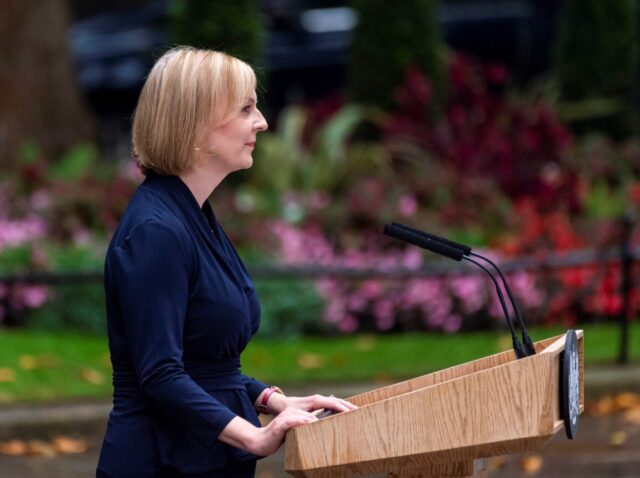Prime Minister Liz Truss has announced a freeze on energy bills, an end to the ban on fracking for shale gas, and new licences to drill oil in the North Sea.
With the United Kingdom facing a punishing energy and cost of living crisis, Truss, who at the beginning of this week succeeded Boris Johnson to become Britain’s fourth Conservative (Tory) prime minister since David Cameron ousted the Labour Party in 2010, has opted for radical intervention to stem the proverbial bleeding and lay the foundations for greater energy independence after years of mismanagement.
Speaking in the House of Commons, Truss first announced a temporary suspension of green agenda levies and then the two-year freeze, which will mean “a typical household will pay no more than £2,500” and “save a typical household £1,000 a year” and come on top of “the £400 energy bill support scheme” announced by the Johnson administration.
Businesses, charities, and public sector organisations will receive an “equivalent guarantee” — but only for six months, with further support offered to “vulnerable sectors” after this in a non-specified way.
The freeze on energy bills is expected to cost some £150 billion, according to The Times — although this could change with wholesale natural gas prices — and be funded largely by borrowing, greatly increasing a national debt already inflated to exorbitant levels by spending on the Chinese coronavirus pandemic.
Truss rejected imposing a windfall tax on energy companies, as demanded by the opposition Labour Party, to help fund the policy, on grounds that this would hinder efforts to increase domestic production.
On domestic production, Truss promises a “over 100 new licences” to extract North Sea oil and gas, and accelerated deployment of “clean and renewable technologies including hydrogen, solar, carbon capture and storage, and wind, where we are already a world leader in offshore generation.”
More importantly, she confirmed she will “end the moratorium on extracting our huge reserves of shale, which could get gas flowing as soon as six months” — but only “where there is local support for it”, meaning climate activists could significantly slow things down.
Truss did make a point of saying she remained “committed to net zero by 2050” regardless of her announcements on fracking and North Sea extraction, however.
“If we fail to act, if we don’t protect the economy against the shock of the size and scale that we are talking about, then there is going to be enormous economic damage in any event,” explained Simon Clarke, the Truss administration’s so-called “levelling up” secretary, prior to the Prime Minister’s controversial announcement.
Paul Johnson of the Institute for Fiscal Studies (IFS) had said a price freeze would be “terrible policy” that could “[hold] prices constant [and] strain… supply, [increasing] the risk that you’ll end up with shortages” — but added that it was likely “unavoidable” regardless, with few other options available to see the British public through the winter.
Indeed, for all its potential downsides, Truss’s spending splurge is being welcomed by prominent non-partisan actors for its potential to avert disaster in the short term for a great many ordinary people.
“My great call has always been that we need to have the political will to do something. I think we now have that political will, I very much welcome the plans that are coming today,” commented Martin Lewis of moneysavingexpert.com, Britain’s most famous consumer campaigner.
“Millions of people, if not tens of millions, will breathe a sigh of relief,” he told listeners on BBC Radio 4.

COMMENTS
Please let us know if you're having issues with commenting.